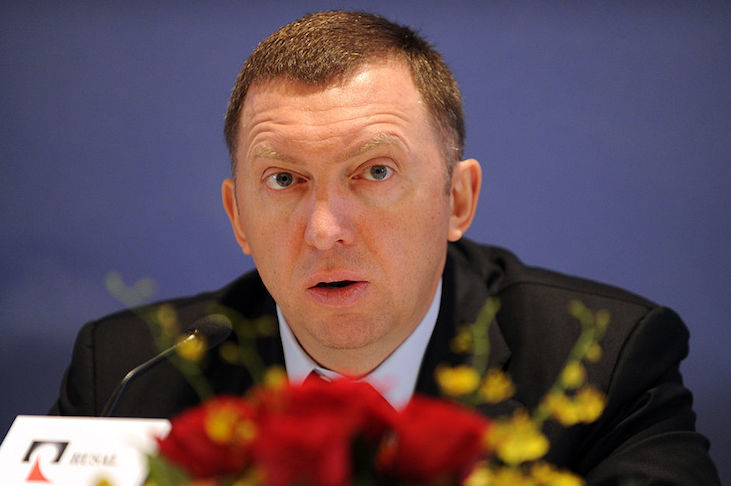In connection with the receding possibility of a London Stock Exchange listing for Saudi Aramco, I wrote that the City authorities’ apparent eagerness to accommodate companies ‘from places not best known for their accounting standards, business probity or general attachment to democracy and the rule of law’ smacked of Brexit-driven desperation. Russia was one of the places I had in mind. Now along comes a listing candidate that rings more alarm bells than the secretive Saudi oil giant.
The company concerned is called EN+ Group, and it is the first Russian entity to come to the London market since Russia’s aggression in Ukraine and Crimea provoked US and EU sanctions in 2014. EN+’s business is ‘energy and aluminium’; its controlling shareholder is Oleg Deripaska, the Russian billionaire often described as a member of Vladimir Putin’s inner circle and best known in the UK for entertaining George Osborne and Peter Mandelson on his yacht in Corfu in 2008. More topically, Deripaska has a well-documented history of dealings with Paul Manafort, the former Trump campaign chief who has been indicted for money laundering.
Gossip aside, EN+ is clearly a big business, with revenues of $5.8 billion in the first half of this year; and even if its published numbers so far are no more than ‘highlights’, we can expect advisers and listing officials to do the necessary due diligence. Likewise in reassuringly old-fashioned style, EN+ has a lord on the board in the person of its recently appointed chairman, the former climate change minister Lord (Greg) Barker. Its $1.5 billion flotation will generate fees for blue-chip banks such as Citigroup, Credit Suisse, J.P. Morgan and Merrill Lynch, and will tie in a major Chinese investor, AnAn Group, of the sort that the City is also keen to attract. So why be sniffy about a deal which reaffirms London’s pre-eminence in global capital markets?
Well, some might say that the City shouldn’t be doing business with anyone so close to Putin’s Kremlin; but such fastidiousness broadly applied to unsavoury regimes might rule out trading with half the emerging world, which isn’t where we want to be as Brexit approaches.









Comments
Join the debate for just £1 a month
Be part of the conversation with other Spectator readers by getting your first three months for £3.
UNLOCK ACCESS Just £1 a monthAlready a subscriber? Log in